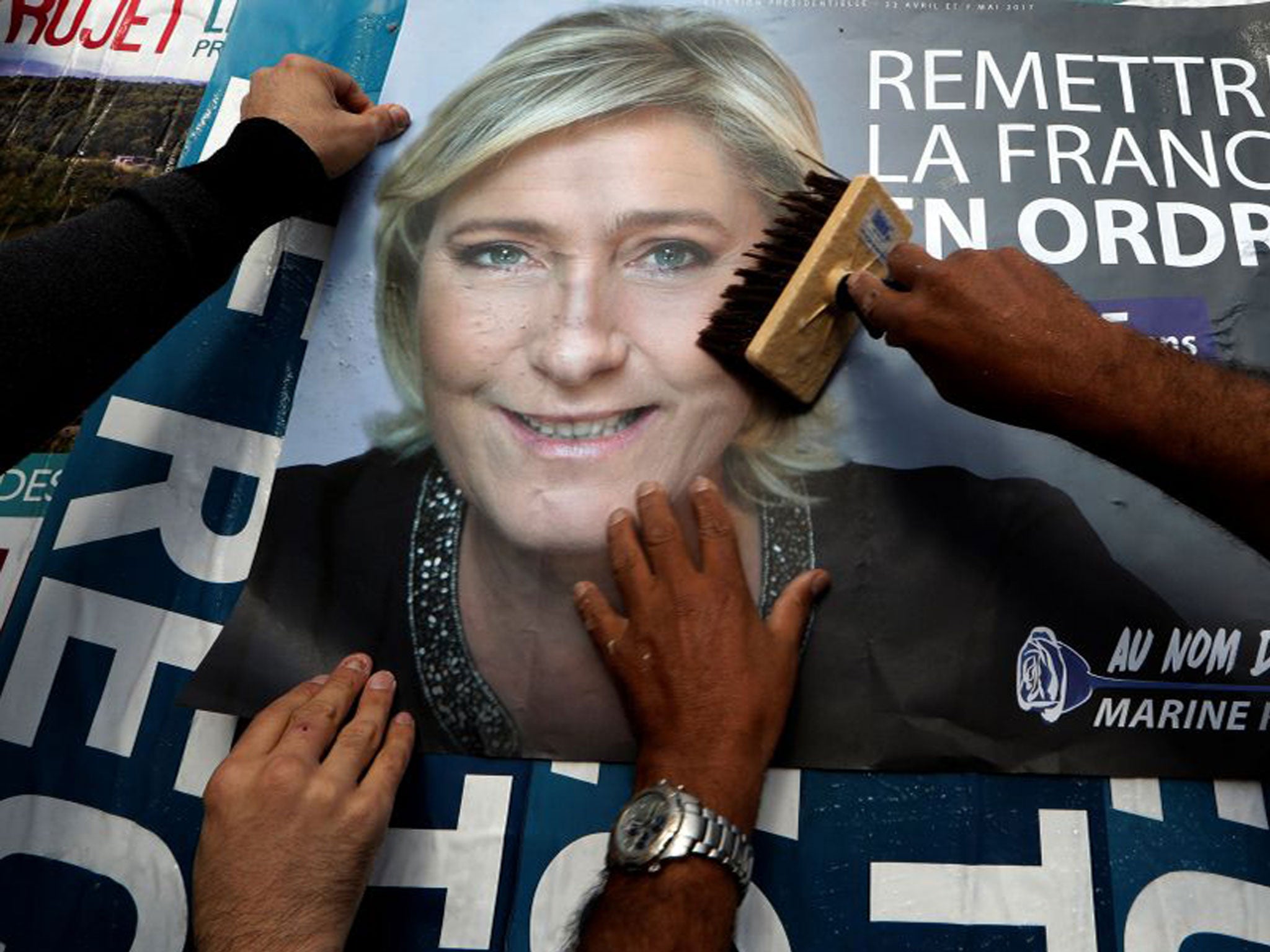Don't be so relaxed about the demise of Marine Le Pen – she's more popular than ever
France today is a more divided country than it was in 2002. It is crippled by high unemployment and more than 200 people have been killed in terror attacks since 2015


A wave of relief swept through Europe after newcomer Emmanuel Macron won the first round of the French presidential election on Sunday. Markets cheered as the euro briefly surged to a five-month high against a basket of currencies and Paris' CAC finished the day 4.1 per cent higher, writing off Marine Le Pen as the next French President and with it the existential threat to the euro and Europe itself. Brussels and Germany, meanwhile, applauded Macron’s victory hoping it will revive the Franco-German partnership at the heart of the EU and stop the wave of populism that has swept over the Western continent in recent months.
But aren’t we taking his victory for granted and celebrating too prematurely?
According to the latest Ipsos poll for France Television, Macron, a 39-year-old former banker, would take 62 per cent of the vote compared with just 38 per cent for Marine Le Pen. But if Le Pen seems to be losing ground, it would be dangerous to discount her chances of winning the race to the Elysee Palace. She has never been so popular.
The Front National (FN) – Le Pen’s party until Monday, when she stepped aside in a symbolic move interpreted as an attempt to reach out to more voters – picked up a record 7.6 million votes on Sunday. This is the strongest ever result for a FN candidate and 2.8 million more than her father, Jean-Marie Le Pen, got when he stood in the first round of the presidential election in 2002.
It is also worth noting that Le Pen Senior was crushed by his opponent, Jacques Chirac, who received 82 per cent of the final vote that year. This is 20 per cent more compared to the predicted score for Macron, showing that such strong opposition to the FN is fading among the electorate.
France today is a more divided country than it was in 2002. It is crippled by high unemployment, with three million people or 10.2 per cent of the workforce out of jobs, and security concerns are high in voters' minds, after more than 200 people have been killed in terror attacks on French soil since 2015. That has played into Le Pen's favour, and she knows it very well.
Macron now has to convince reluctant voters who see the former banker as “the reincarnation of capitalism” to go to polls and heal divisions splitting the country. This won’t be as easy as it sounds. A 25-year-old law student who voted for Jean-Luc Melenchon, the leftwing candidate who refused to back either Macron or Le Pen in the second round, told me: “I am not sure if I will vote in the second round and all the people who supported Melenchon are asking themselves the question.”
“Why should I give my vote to an elitist candidate I don’t believe in? Right now I am not sure of anything but I am tempted to vote blanc [hand in a ballot without selecting any candidate]”.
An architect in her early thirties working in Paris who backed Macron at the first round said: “I am happy that he won the first race, but it is far from over. On Sunday, he was celebrating as if the race was already won. I thought it was arrogant of him, especially considering the FN’s historically high score”.
Indeed, Macron has already made his first mistake by celebrating his victory in a chic restaurant on Sunday – a party widely compared by commentators to former President Nicolas Sarkozy's infamous night at Fouquet’s, another top Parisian restaurant after his 2007 election victory - the exact “political elite” event voters might feel alienated by. Many, including David Cormand, the head of France’s Green party, criticised the dinner, claiming the qualification of the National Front in the second round was no reason for anyone to celebrate. Cormand tweeted: “This party at La Rotonde is unworthy in a political situation when the far right is qualified for the second round.”
Pollsters and bookmakers both state that it is very unlikely that Le Pen could win the race against Macron. Polling experts told The Independent that it would take a scandal of “significant proportion” to ruin Macron’s chances. But if the events of 2016 taught us anything, it is that those polls can be wrong.
Only two weeks remain before the 7 May run-off between the two remaining presidential candidates. Le Pen’s manifesto includes, among other policies, negotiating with EU for return to French sovereignty, a return to the franc, clamping down on free trade, cutting immigration and a referendum that could lead to 'Frexit'.
Instead of popping champagne corks, Macron should get to work if he wants to avoid yet another shock Western election result in 2017.



Join our commenting forum
Join thought-provoking conversations, follow other Independent readers and see their replies